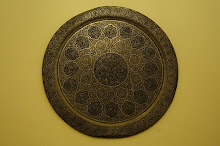
"There is no humanity in diplomacy," said a commentator on television recently when discussing the Syrian crisis. Indeed, many of the immediate concerns of "humanity" are left to humanitarian organizations to manage, while other critical dimensions - like providing dignity, legitimacy, and lasting answers - are lost in the turmoil of interest-driven politics.
The United Nations High Commissioner for Refugees, Antonio Guterres, wrote an article in the Cairo Review detailing the refugee crisis in the Middle East today. He explains how the creation of a new refugee problem in Syria, combined with the older question of the Palestinian refugees and other lingering problems, have now overcharged the region. The challenge is now vast, leaving host countries with an overwhelming burden:
- Syrian Refugees: 1.3 million refugees in other countries; 4,000,000 internally displaced
- Iraqi Refugees: 94,000 refugees still in Syria and Jordan; 1,000,000 internally displaced
- Yemen: 230,000 refugees in Yemen, most of them Somali; 400,000 internally displaced
- Libya: 500,000 refugees of 800,000 from 120 nationalities who had originally crossed Libya's borders in early 2011; 60,000 internally displaced
- Palestinian Refugees: 5,000,000 (eligible for UNRWA services) dispersed throughout the Middle East and beyond.
Without counting Palestinians, this amounts to 2,124,000 refugees and 5,460,000 internally displaced in the Middle East. The grand total who have been cast out of house and home is over 12,000,000. The scale can be likened to the situation of Europe at the end of the Second World War, but in the Middle East, this is happening during a rolling and ongoing series of crises.
In some smaller countries, such as Lebanon and Jordan, the recent influx of Syrian refugees amounts to 10% of the local population. Host countries are doing their best but they cannot manage such numbers alone. Furthermore, their citizens feel threatened by unwanted strangers whose presence, they believe, is the cause of an increase in prices and crime. As Guterres points out, the Middle East's tradition of generosity and hospitality is now under heavy pressure.
What can be done?
International humanitarian organizations such as UNHCR and UNRWA are doing all they can to deliver aid and services (and everyone can donate on their websites). They provide as much material aid as possible; however, the refugees' loss of status, legitimacy and security, equally important needs, are barely attended to.
Can the region itself do more to address these problems? The automatic answer is that regional actors today are barely managing their own affairs and, although the Arab tradition of social hospitality is strong, it does not translate well into the political sphere. Interestingly, however, some Gulf states, especially the UAE, have become more active in providing funds or serving as logistical hubs.
As we had mentioned in a previous post, a key problem in the region today is a lack of empathy between groups. There is a desperate need for common purpose and a greater sense of identity than family or tribe. Also, "solutions" in the region all too often take the form of local violent reactions, or, ironically, international intervention. But, there is a large spectrum of possible action in between, especially at the regional level.
 Practically speaking, it may be more effective to meet the refugees and host countries' needs through a regional framework. Such an approach would provide greater autonomy and control over the problem, improve coordination between affected countries and the capacity to act locally, and create more organic and cultural links to the refugees, including improving their status in host countries.
Practically speaking, it may be more effective to meet the refugees and host countries' needs through a regional framework. Such an approach would provide greater autonomy and control over the problem, improve coordination between affected countries and the capacity to act locally, and create more organic and cultural links to the refugees, including improving their status in host countries.Such a potential "Middle East Refugee Organization" can continue to work in close coordination with and through the support of international actors. Critically, such regional responsibility would begin to move the Middle East away from a deep reliance on others to solve problems, and also create a way to begin to chip away at the tribal reflexes that plague the region. Although distrust is rampant in the Middle East, and a core obstacle to cooperation, host countries, like the Lebanese, would do well to remember their own recent experience as refugees. Others may also yet suffer such a fate in the future, i.e. this is a common human problem.
There is no doubt that, as Guterres stresses, the ultimate resolution to this problem is through new political arrangements. However, until this happens, if regional actors and host countries attend to the refugees material and emotional needs, they are far less likely to become the threat that many in the region fear.
As much as this seems contrary to the tough political habits of the Middle East, dealing with the refugee issue regionally may spur a badly needed virtuous cycle in the region, and, in the process, infuse some badly needed humanity into diplomacy. It may also may add backbone to the resolution of other problems, such as regional economic, water and food security issues.
At the end of the day, these millions of individuals that we call refugees are the victims of history and the dysfunctional politics of the region. Their lot does not mean that their basic needs have disappeared, including the need for dignity despite the loss of home and security. A greater attendance to these common human needs could at least mitigate their tragic experience.
For a look at the state of Syrian refugees, see this powerful photo essay.































